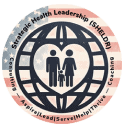How will you balance algorithmic insight with moral weight and human impact?
Uncover seven vital competencies that secure human leadership in an AI-powered healthcare era.
Table of Contents
Executive Summary
AI accelerates analysis, but only human leaders shape its purpose. This chapter outlines five essential skills—empathy, creative moral judgment, humor, strategic thinking, and storytelling—and details three leadership competencies crucial for achieving upstream impact: ethical imagination, systems-level political fluency, and trust-building narratives.
Framework tools such as SWOT, PESTLE, and Business Model Canvas help strategic thinkers align AI with human contexts, ensuring that values and equity guide transformation. The future of MAHANSI demands human-led AI. To learn more, use the links, questions, learning activities, and references.
Introduction: Embrace the Human Edge in AI Health
Leaders and peers, brace yourself. AI’s emergence in health is not a future threat—it’s already here. According to Sinha in Times of India, five soft leadership skills—empathy, value-driven judgment, humor, creativity, and moral decision-making—remain beyond AI’s reach. They are. Trust me.
That gap is the MAHANSI’s—Make All Americans Healthier as a National Strategic Imperative—launchpad: MAHANSI calls for humane, upstream strategies that go beyond data dashboards. AI can optimize, but it can’t connect. We risk building lean systems with no soul. The charge: build third-wave health leadership that fuses AI with human essence.
Empathy, inventiveness, and moral integrity are not merely “soft” qualities; they are essential to our goal. AI looks for patterns, but we are responsible for our actions and morals. Marc Benioff of Salesforce says that AI should not replace people, but rather make them better.
At worst, we risk creating systems that optimize cost and efficiency while corrupting trust, marginalizing voices, and disregarding lived experiences. That’s not health—it’s hollow.
Reveal the Strategic Advantage AI Can’t Replace
In addition, strategic thinking is our secret weapon. It requires more than just responding to metrics; it requires combining insights, seeing patterns, and imagining the long-term effects. Health systems use AI now, but it’s not a replacement for strategic thinking and planning. MAHANSI wants more: AI should make our leadership stronger, not take its place. SHELDRs hold the blueprint—seeing beyond models to moral choices, political nuance, and authentic connection. That’s how
Master Big‑Picture Strategy With Contextual Intelligence
Strategic thinking begins with looking beyond tasks to comprehend the broader context, including competition and long-term objectives. It requires framing the big picture and pursuing sustained impact, rather than quick wins. According to Rich Horwrath, Harvard Business Review, true strategic thinkers don’t just react—they anticipate trends, risks, and opportunities ahead of time. They shift focus between past, present, and future, weighing multiple factors to shape direction.
Lead With Judgment: AI Lacks Moral Compass
AI excels at crunching numbers but struggles to decide on direction or balance trade-offs morally. It lacks understanding of values, politics, and relationships. Leaders integrate insight with purpose, crafting strategies anchored in stakeholder perspectives and human contexts. Use AI to enhance analysis—but lead with creativity, judgment, and systems thinking. Strategic thinking remains a distinctly human capability; AI can inform choices, but it cannot make them.
Deploy SWOT, PESTLE & OGSM to Outthink AI
To act strategically, utilize proven tools and frameworks, such as SWOT analysis, Porter’s Five Forces, or PESTLE, to assess both internal and external environments. Frameworks like the Business Model Canvas (watch the Video) or OGSM align vision with measurable goals. These tools help leaders set clear objectives, anticipate change, and solve problems that serve the broader mission, not only improve operations.
Elevate Leadership: Connect Dots AI Misses
Strategic thinking is a creative and cognitive act—connecting the dots that AI merely flags. Leadership isn’t delegable to algorithms. AI accelerates strategy by automating analysis, but can’t replace intentional question-asking, moral positioning, or connecting stakeholders. Now, activate these three AI-proof leadership competencies.
Unleash Ethical, Political & Narrative Leadership
Health leadership stands at a turning point. AI delivers data and predictions, but genuine transformation demands human strategy and voice. AI-free skills, such as empathy and moral judgment, remain vital, as highlighted by The Times of India. Our task links the MAHANSI mandate with upstream leadership that uses AI as a tool, not a substitute.
Strategic thinkers will design systems that serve, not just score metrics. Let’s break down the competencies that future-proof leadership in an AI-touched world.
- Ethical Imagination & Values-Based Judgment: AI can show disparities, but only leaders can decide to reroute funds based on moral convictions. We must engage communities, hold values discussions, and choose equity over risk-averse default.
- Adaptive Political Fluency & Systems-Level Strategy: Understand policy cycles, incentives, and trust rhythms. Systems thinking lets you trace patient touchpoints across health, housing, and social services—so AI insights become upstream impact, not downstream interventions.
- Persuasive Storytelling & Trust Building: Dashboards don’t move the state legislature or family caregiving networks. Aspiring leaders must harness patient voices, staff narratives, and coalition frameworks to embed AI in an ethical manner.
These competencies align human purpose with the power of AI. Ethical judgment, political agility, and narrative leadership ensure technology serves humanity, not the other way around.
Leaders who master these skills will create systems that not only optimize but also heal. AI can enhance analysis, but only human strategy guides values-driven decisions and cohesive system evolution.
Choose Purpose Over Process with AI
AI supports strategic analysis but can’t set intent or balance trade-offs anchored in purpose. Soft leadership skills and strategic thinking demand intelligent opportunism and emergent strategy—seizing chance windows, pivoting mid-course, integrating intuition and foresight. Henry Mintzberg, a renowned management theorist, emphasized that effective management, particularly in the realm of strategy, is not merely about crunching data but about
Humans integrate context, including culture, politics, and values—elements that AI lacks. In the MAHANSI era, these are the levers that shape health systems, not just algorithms.
Challenge the AI – Lead with Heart
AI identifies opportunities. You define the mission. This chapter makes the case that leadership still requires conflict resolution, empathy-driven decision-making, and political acumen. Ethical imagination, systems-level strategy, and trust-building storytelling form the foundation.
Utilize SWOT, PESTLE, and narrative arcs to align technology and values by the MAHANSI mandate. Will your health system be just efficient, or meaningfully healthy and equitable? Consider the discussion questions and learning activities, then check out these articles at the Strategic Health Leadership (SHELDR) website:
7 Compelling Reasons for the Importance of Studying Strategic Health Leaders (SHELDR)
Discussion Questions
- Describe a time AI improved efficiency but didn’t improve patient trust. What changed when you, not the machine, intervened?
- Have you ever overridden a data recommendation based on core values? What did that look like?
- Who are your unexpected allies in building upstream AI‑equity bridges—faith leaders, librarians, housing advocates—and how will you engage them?
- When did strategic thinking, not AI insight, enable your team to pivot successfully mid-initiative?
- How will you hold yourself and your team accountable to ensure AI augments leadership but never replaces it?
Professional Development & Learning Activities
- Ethics Huddle Series: Monthly team rounds analyzing AI-influenced decisions using structured ethical frameworks; unpack bias, trade-offs, and equity.
- Systems Mapping Workshops: Multi-sector teams visualize AI’s role across community ecosystems, identifying entry points and unintended downstream effects.
- Storytelling Rounds: Frontline staff and patient panels share narratives related to AI. Leaders then co-design interventions that reflect lived experience and values.
Videos
- Can AI Bring Humanity Back to Health Care?
- Leadership in the Era of AI | Full Conversation
- Leadership in the AI Era: Building, Learning & Experimenting
- Navigating Leadership in the AI Era
- AI Transforms Health Care
- Strategic Thinking in Medical Affairs: The Key to Career Success
Hashtags:
#MAHA #SHELDR #MAHANSI #StrategicHealth #AILeadership #AIHealthLeadership #StrategicAI #HumanFirstHealth #FutureHealthcare #AIEquity




